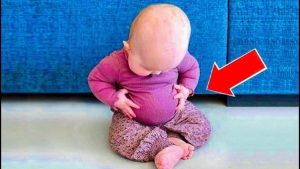Prince Harry finds himself under scrutiny and facing accusations of prioritizing his own “childish” delusions over being a responsible role model. Mental health specialist Dr. Gilda Carle has voiced her concerns, highlighting how Prince Harry’s delusions regarding his own paternity may be causing harm to his children, Archie and Lilibet.
Dr. Carle, a prominent expert in the field, shed light on the matter by referencing Prince Harry’s memoir, intriguingly titled “Spare,” where he delves into his struggles as the “surplus successor” to Prince William. This exploration of his feelings reveals the challenges he faced within the royal family.
Addressing the issue, Dr. Carle stated, “Given Prince Harry’s firsthand experience of witnessing his mother being sidelined due to Prince Charles’s relationship with Camilla, it is understandable that he sought solace in Meghan, who eventually guided him away from the royal family.”
However, Dr. Carle raised concerns about the victim mentality that Prince Harry appears to exhibit, suggesting that it could have long-term negative effects on his children, particularly Archie and Lilibet. The specialist emphasized the importance of Prince Harry moving beyond this phase and taking on the role of a mature adult and responsible parent.
The revelations in Prince Harry’s memoir have sparked a public debate about the impact of his delusions and the potential consequences for his children’s well-being. Many believe that it is crucial for Prince Harry to prioritize his role as a father and ensure that his actions align with the best interests of Archie and Lilibet.
While some argue that Prince Harry’s candor about his struggles can be seen as a positive step toward destigmatizing mental health issues, others express concerns that his focus on personal grievances might overshadow the more important aspects of his life, such as his parental responsibilities.
Critics argue that as a prominent figure and a member of the royal family, Prince Harry has a duty to serve as a positive role model, both for his children and the wider public. They contend that his preoccupation with his own delusions could hinder his ability to fulfill this responsibility effectively.
In light of these concerns, experts and observers are calling on Prince Harry to reflect on the potential impact of his actions and beliefs, urging him to prioritize the well-being and emotional stability of his children. It is crucial for him to consider the long-term effects his choices may have on their lives, ensuring that they are not negatively influenced by his personal struggles.
As the debate surrounding Prince Harry’s delusions continues to unfold, mental health specialists and child psychologists stress the significance of providing a stable and nurturing environment for Archie and Lilibet. They emphasize the importance of parental figures demonstrating resilience, self-awareness, and a commitment to the well-being of their children.
The public’s attention remains focused on Prince Harry as he navigates this challenging period in his life. It is hoped that he will heed the warnings from experts like Dr. Gilda Carle and take the necessary steps to prioritize the emotional well-being of his children, ultimately serving as a responsible and positive role model in their lives.





